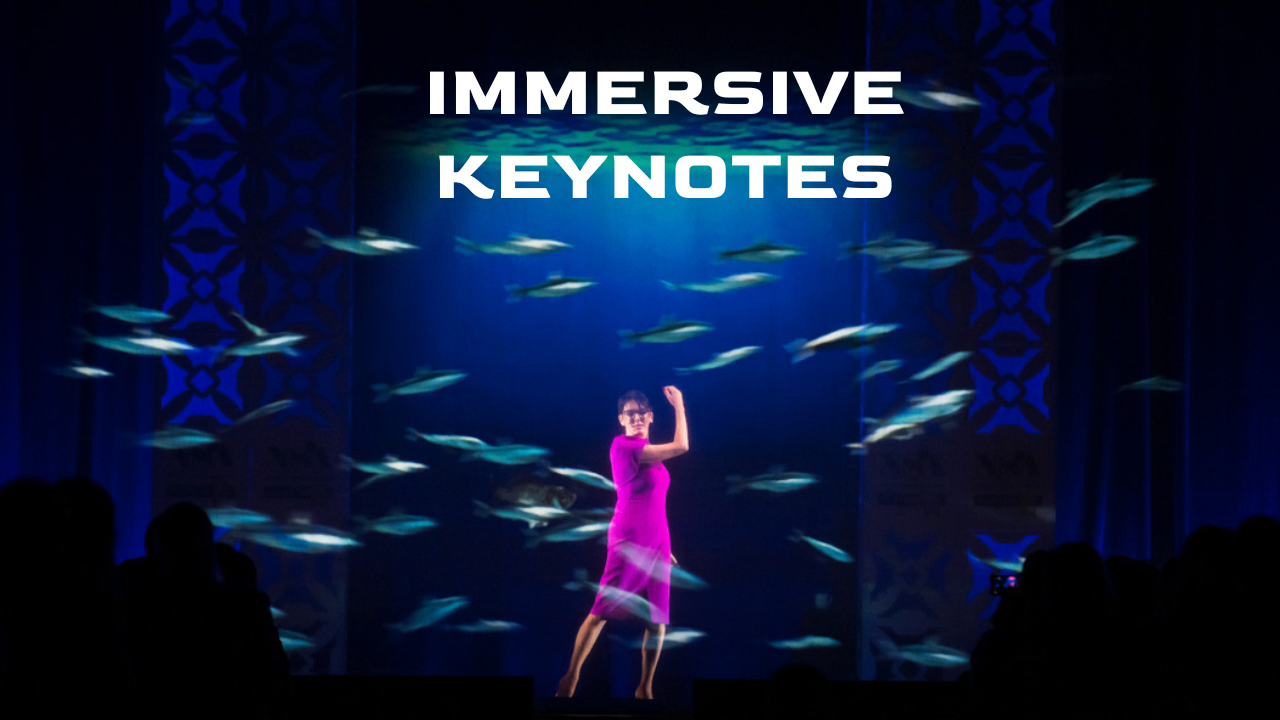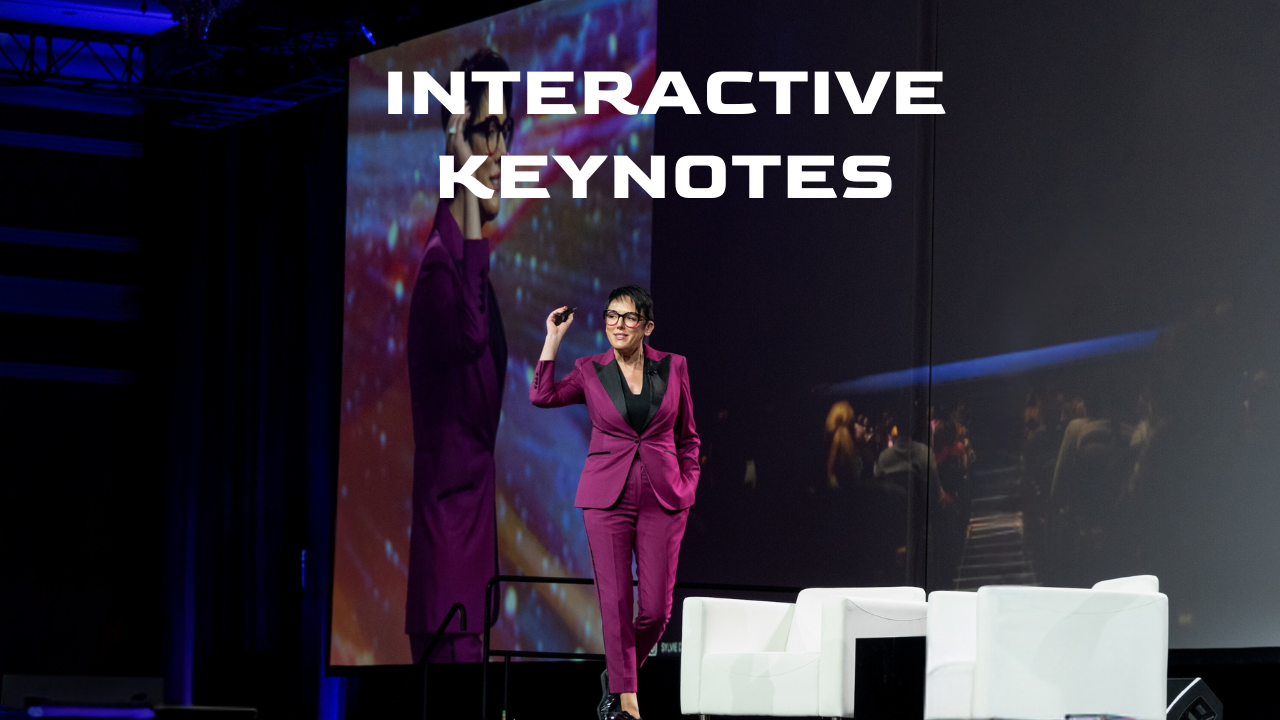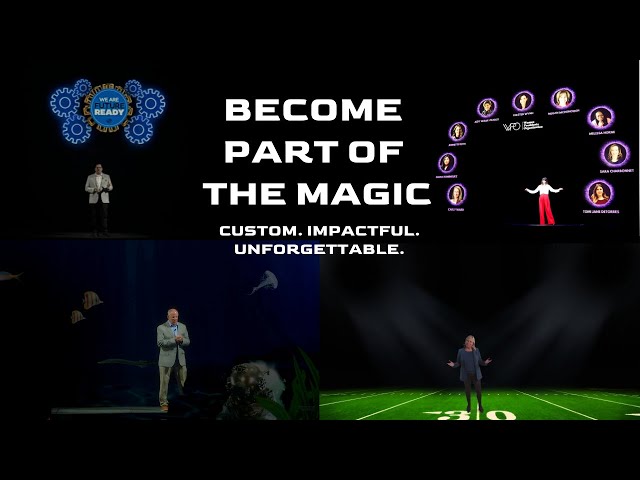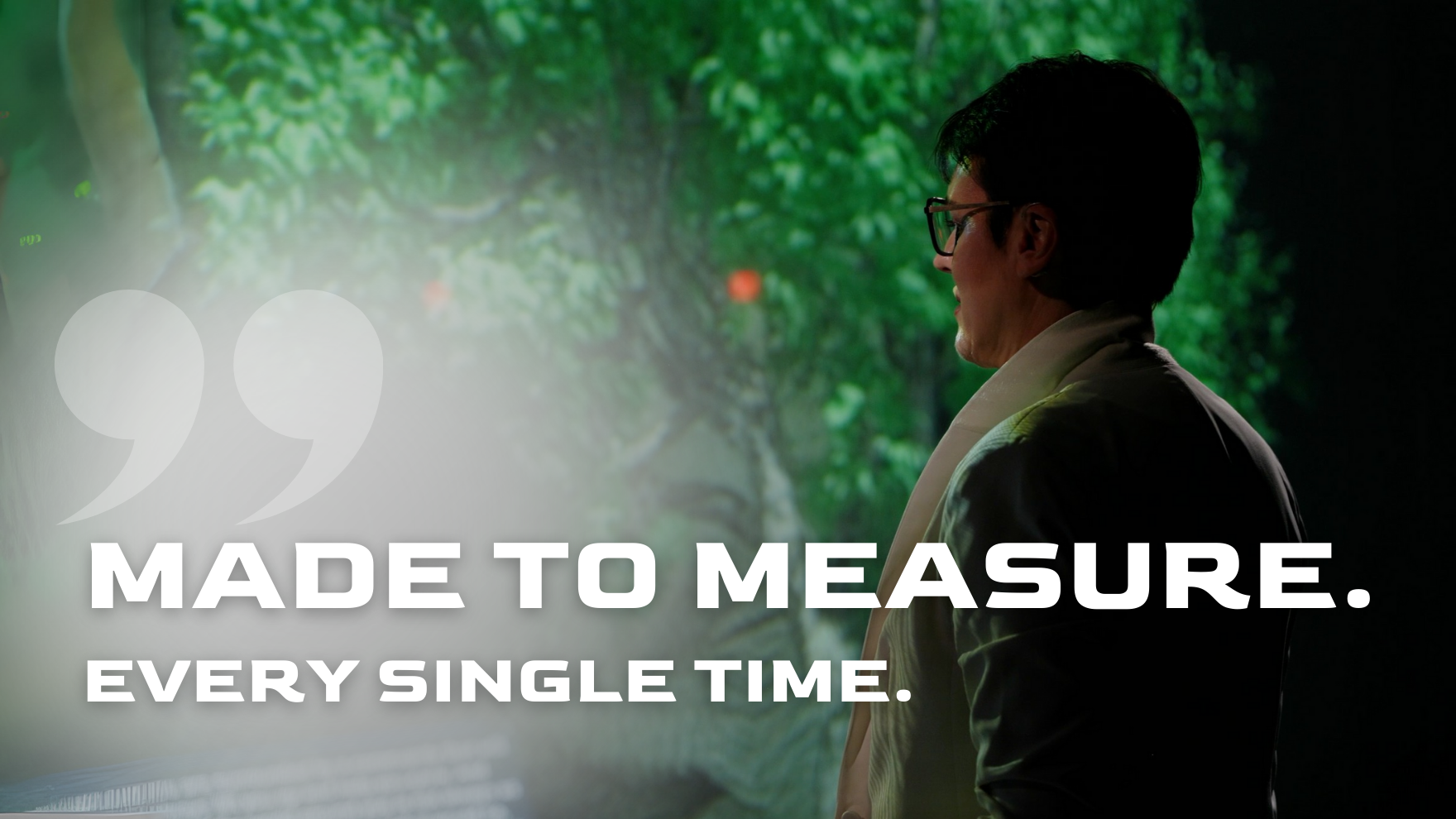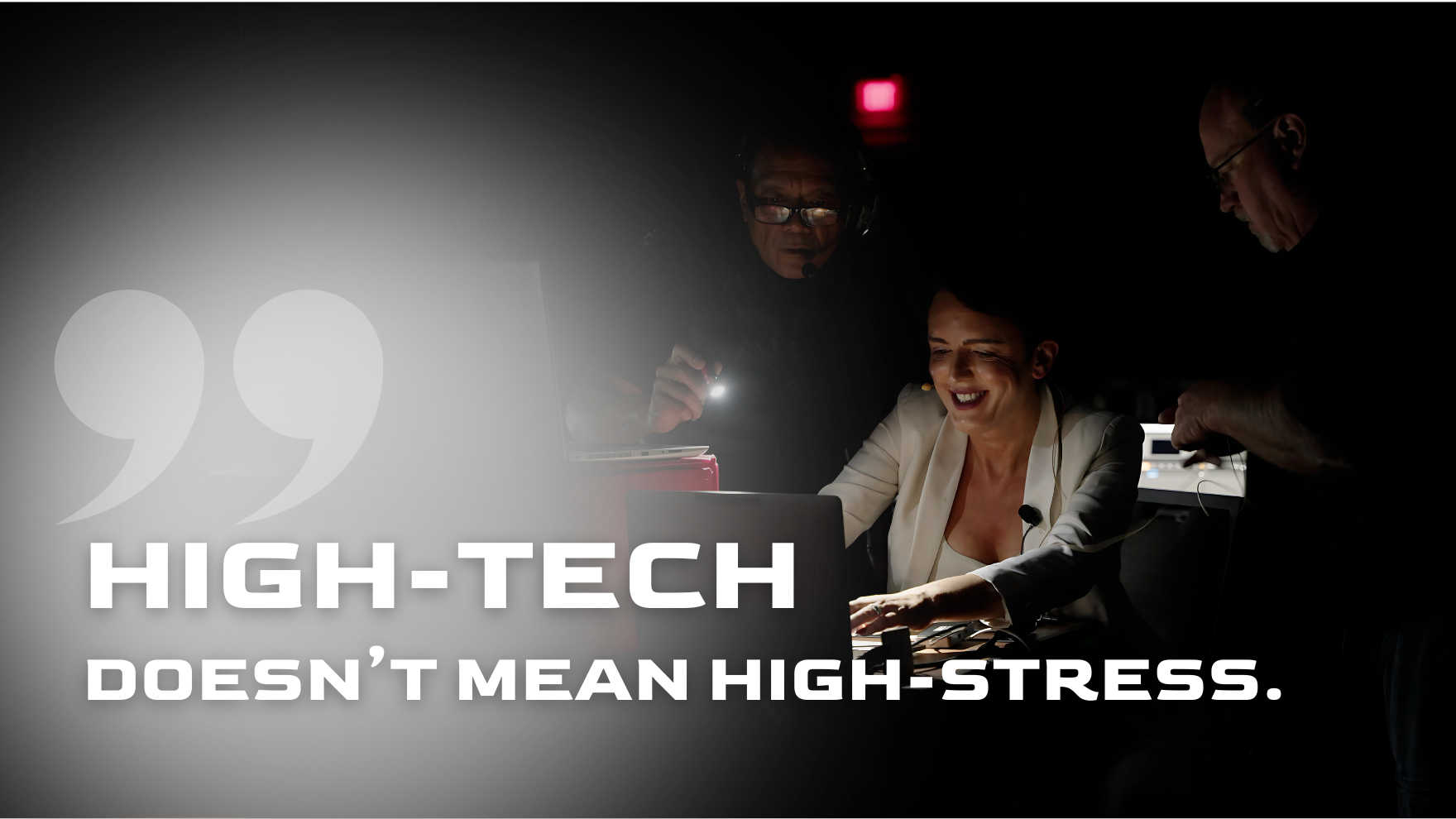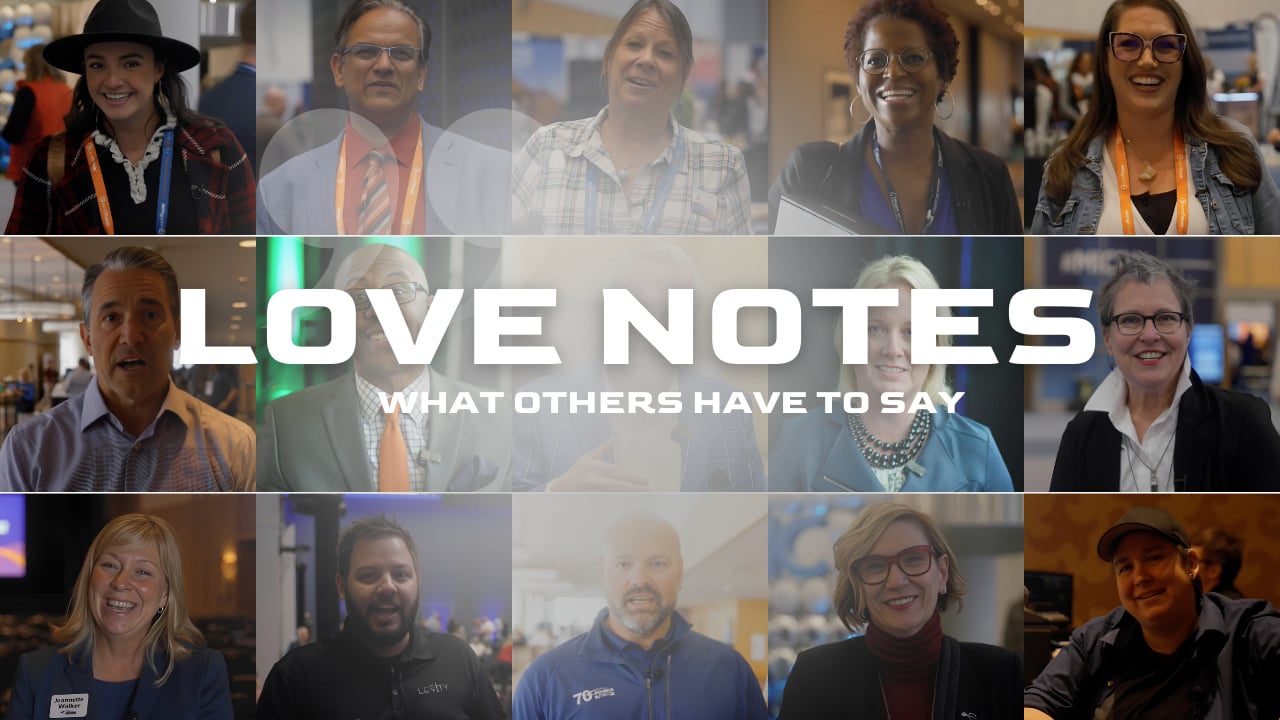Tips to make your award acceptance speech short, sincere, and unforgettable
There is something magical about standing on stage, holding an award, and realizing you have only a few minutes to capture everything that moment means. It feels both exhilarating and impossible. An award acceptance speech is not just a formality. It is an opportunity. It can inspire, connect, and leave people talking long after the lights go down. The challenge, of course, is how to make those few minutes count.
On July 29, 2025, I was inducted into the Hall of Fame of Speakers of the National Speakers Association and faced the same challenge you may currently encounter: how to thank so many people in such a short time. Watch my acceptance speech as an example, and then use the following tips to shape your own words in a way that feels both authentic and impactful.
Here are some tips to help you write an award acceptance speech that feels authentic, engaging, and unforgettable
Key Takeaways
- Lead with genuine emotion, not a script.
- Keep your speech short but meaningful.
- Share the spotlight by thanking others.
- Use a story to connect, not just a list of names.
- Balance light humor with humility.
- End with a thought that lingers.
- Remember: an award acceptance speech is about impact, not performance.
Start With Heart, Not a Script

The best award acceptance speeches don’t sound like essays being read aloud. They feel like conversations. Start with what you truly feel in the moment: gratitude, surprise, joy, and let that set the tone. A heartfelt thank you will always land more deeply than a perfectly polished line.
Why does this matter? Because audiences want to connect with you, not a performance. They want to hear the raw emotion in your voice, the slight pause when you hold back tears, the natural smile when you think of someone you love.
Scripts can polish words, but they often polish away authenticity, too. Leading with your heart shows vulnerability, and vulnerability builds trust in an instant.
Questions to Ask Yourself:
- What am I genuinely feeling in this moment?
- How can I express gratitude without overthinking the words?
- Who or what first came to mind when I heard my name?
- What emotion do I want the audience to feel as I begin?
- How can I avoid sounding overly rehearsed?
- Where can I pause naturally to let the moment sink in?
- What tone feels most true to me—joyful, humble, or reflective?
Keep It Short, but Make It Rich

Most acceptance speeches last only a few minutes. That doesn’t mean they should be rushed or shallow. Focus on the essentials: who supported you, what the award represents, and one or two key lessons you’ve learned along the way. Brevity paired with meaning is far more powerful than trying to squeeze in everything.
Audiences rarely remember long speeches, but they always remember the ones that respected their time. By keeping your remarks concise yet layered with meaning, you create a balance of respect and resonance. Think of it like a highlight reel: a short moment can capture the essence of an entire journey if you choose the right pieces to share. Keeping it rich ensures your words feel substantial, not superficial.
Questions to Ask Yourself:
- What two or three points matter most to share?
- If I had only 90 seconds, what would I say?
- Which parts of my story add value, and which are just filler?
- How can I make every sentence count?
- What message do I want the audience to walk away with?
- How do I balance gratitude with brevity?
- Where can I simplify without losing meaning?
Shine the Spotlight on Others

An award may have your name on it, but it is never just about you. Think of colleagues, mentors, friends, or family whose fingerprints are on your journey. Thanking them directly not only honors their role but also demonstrates humility and a broader perspective. Recognition feels more genuine when it is shared.
Why is this so important? Because gratitude builds community. When you acknowledge others, you remind the audience that success is rarely a solo act. You also allow those watching (especially young professionals or peers) to see the power of collaboration. People admire leaders who elevate others, and an award acceptance speech is the perfect chance to model that generosity.
Questions to Ask Yourself:
- Who had the greatest influence on this journey?
- How can I highlight their role without just listing names?
- What specific contribution stands out most?
- Who supported me in ways the audience might not know?
- How can I show appreciation that feels personal and real?
- Whose presence or absence do I want to honor?
- How do I remind the audience this achievement is shared?
Tell a Story, Not Just a List

Audiences don’t remember lists of names; they remember moments. A quick story about someone who supported you, a humorous anecdote, or a small but meaningful memory can make your speech memorable. Stories humanize you and connect with listeners in ways bullet points never will.
A story also anchors your message in emotion. A well-told memory can draw a room of thousands into silence, waiting for the conclusion. The best part? It doesn’t need to be dramatic. Even a simple story, like a mentor’s piece of advice or a child’s unexpected comment, can capture hearts. Stories turn a thank you into a shared experience, something the audience can carry with them.
Questions to Ask Yourself:
- What is one story that represents this journey?
- How can I tell it briefly but powerfully?
- What emotion does the story capture—joy, resilience, gratitude?
- How can the story connect with everyone in the room?
- Does the story highlight someone else’s impact on me?
- Is this story memorable enough to stay with the audience?
- How do I make sure it feels authentic, not staged?
Balance Humor and Humility

A touch of humor can relax both you and the audience, but it should never overshadow the moment. The sweet spot is in showing humility, acknowledging that the award is bigger than one person, while letting your personality shine through. A laugh paired with sincerity makes for a speech people enjoy.
Humor works best when it is light, self-deprecating, or situational. It reminds people that even in serious moments, joy has a place. Humility, on the other hand, keeps the spotlight from lingering too long on you and directs it to the bigger picture: the values behind the award, the community it represents, and the work still to be done. Together, humor and humility create balance and authenticity without arrogance, warmth without distraction.
Questions to Ask Yourself:
- Where can I add a touch of humor without forcing it?
- How can humor help calm my nerves on stage?
- What story or phrase will make people smile without distracting them?
- How can I show humility in the way I thank others?
- What is one way I can highlight that this award is bigger than me?
- How do I avoid sounding arrogant or overly self-focused?
- How can I let my personality shine through naturally?
End With a Thought That Lasts

Don’t just trail off with another thank you. Leave the room with a message, an insight, or even a question that lingers. It could be about legacy, responsibility, or a simple reminder of what matters most. A strong ending ensures your words live beyond the stage.
Endings are what people carry with them. The final line of your speech might become the line someone quotes to a friend or writes down for themselves. This is your chance to extend the impact of the award far beyond the ceremony. A lasting message transforms your moment of recognition into an invitation for others to think, act, or dream differently. That is the mark of a truly memorable award acceptance speech.
Questions to Ask Yourself:
- What do I want the audience to remember most?
- How can I tie my ending to the values behind the award?
- What one message feels timeless enough to linger?
- Is there a phrase or sentence that could inspire action?
- How can I avoid ending with a generic thank you?
- What do I want someone to repeat or quote after hearing me?
- How can I connect my ending to something bigger than myself?
More Than a Speech: A Legacy in Words
Writing an award acceptance speech is less about the award and more about the impact you leave on the people listening. Keep it human, keep it honest, and remember—no one ever regrets a thank you that came straight from the heart. At its core, this moment is about connection: lifting up the people who helped you, acknowledging the values the award represents, and leaving a legacy of gratitude that lasts far longer than the ceremony. When you approach your words as a gift rather than a performance, you give the audience something meaningful to carry home with them.
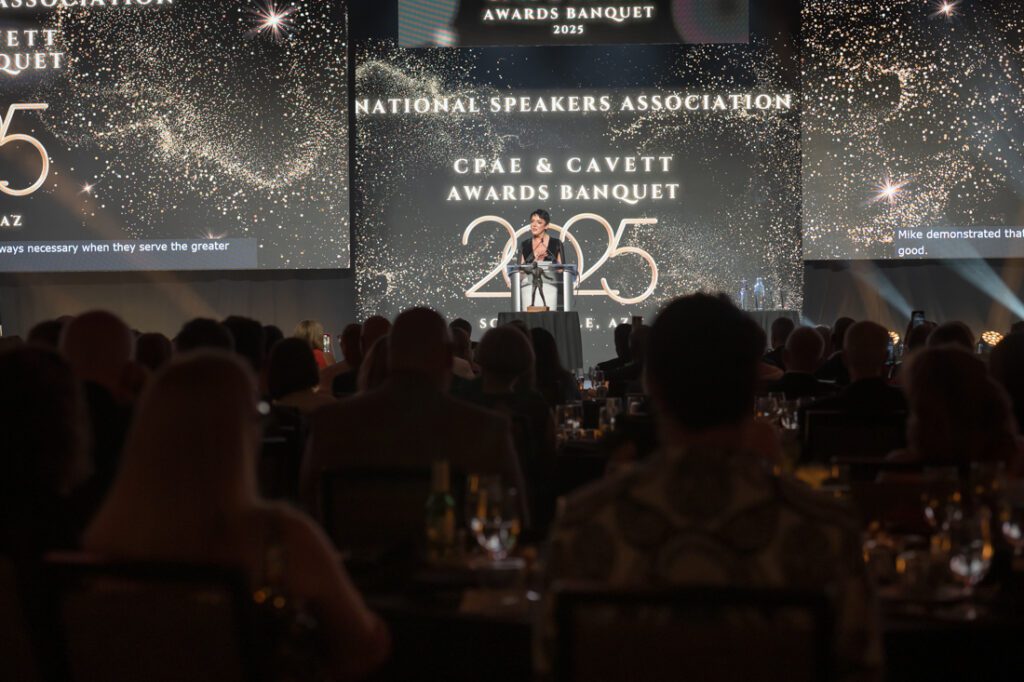

As a CPAE Hall of Fame speaker, I know the real influence of a keynote begins well before the first word is spoken and extends far beyond the final applause. My presentations combine immersive storytelling, emotional intelligence, and innovative stagecraft designed to spark action and transformation. Each keynote is crafted with purpose and care, created not only to share ideas but to change perspectives. Because speaking at its best is never about the speaker—it is about the lasting impression left on every audience.
Curious about how this comes to life on stage? Explore my keynotes here.


